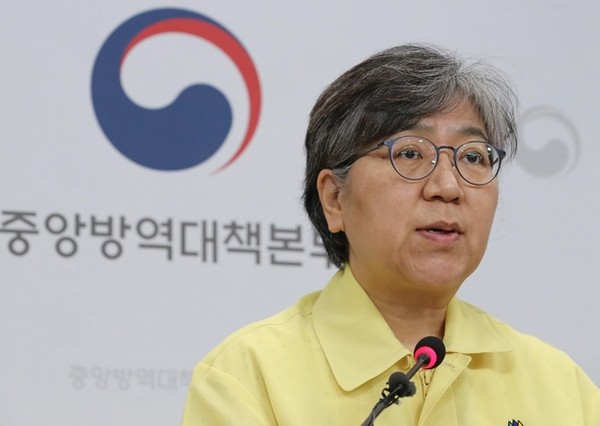More than one hour.
This was the response given by Jung Eun-Kyeong, the director of the Korea Centers for Disease Control and Prevention (KCDC), when asked how much sleep she got every night. Jung, known for her straightforward and calming daily COVID-19 briefings, quickly rose to celebrity status amidst the pandemic. Pictures of her hair gradually greying circulated widely on the web, signifying her selfless efforts in combating coronavirus while sacrificing her well-being.

After finishing her undergraduate studies in 1989, Jung obtained a Master’s degree in Public Health and a PhD in Preventive Medicine at the Seoul National University College of Medicine. Jung joined the Ministry of National Health and Welfare in 1995 and was promoted to the head of KCDC’s disease prevention center in 2015. However, the KCDC was widely criticized for its nontransparent and sluggish methods in combating the MERS outbreak, tainting South Korea as the country with the largest MERS outbreak outside the Middle East. As a result, Jung was suspended from office along with her coworkers and was only later reinstated under a pay cut.
Despite the bitter experience with MERS, Jung was appointed as the director of KCDC in July 2017. The rest is history. KCDC, led by Jung, worked closely with the private sector to increase South Korea’s testing capacity, and implemented a virus tracking system to prepare for the next outbreak. When the news of coronavirus in China was first heard, Jung held briefings twice a day to alert the public of what’s to come. As cases in South Korea inevitably increased, Jung always kept her place in the COVID-19 situation room, taking care of her meals with packed lunches in order to save the little time she had left.
While many laud Jung’s calm leadership in the face of crisis, some question to what extent her fame is actually merited. Some comment that pictures of her white hair are only apt for public appeal and are not tangible results of her work. Others criticize Jung’s silence in questionable decisions made by the Moon administration, such as hastily handing out “travel coupons” during the pandemic, which lie in contrast to Dr. Anthony Fauci’s vocal stance against any wrongdoings of President Trump.
Professor Moran Ki, Jung’s colleague of more than 20 years, commented, “I hope the media doesn’t depict Jung as a hero. She’s great. But if an organization is driven by only one or two heroes, that’s a risky system.” It is without a doubt that Jung is an indispensable part of South Korea’s coronavirus task force. However, excessive praising and politicizing by the media will only raise unwarranted criticism from skeptics. On the other hand, it is understandable why so many are drawn to her. With so many politicians and leaders being involved in scandals, spreading fake news, and failing to live up to expectations, people — especially in a time of unprecedented hardship — look up to others that simply do their jobs silently, but correctly.
The pandemic forced us to look for heroes we did not know we needed. And Jung is one of them.

